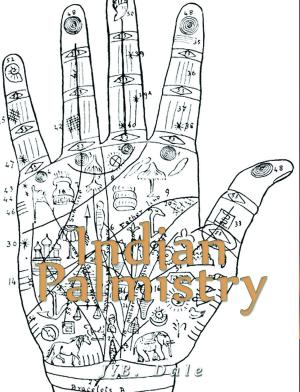The Lives and Opinions of Eminent Philosophers
Biography & Memoir, Philosophers, Nonfiction, Religion & Spirituality, Philosophy, Ancient, Ethics & Moral Philosophy| Author: | Diogenes Laertius | ISBN: | 9781475308143 |
| Publisher: | Charles River Editors | Publication: | April 26, 2012 |
| Imprint: | Language: | English |
| Author: | Diogenes Laertius |
| ISBN: | 9781475308143 |
| Publisher: | Charles River Editors |
| Publication: | April 26, 2012 |
| Imprint: | |
| Language: | English |
Very little is known about Diogenes Laertius, despite the fact he wrote some of the most influential accounts of the lives of the Wests best known philosophers. His mention of Sextus Empiricus means he lived after the 3rd century A.D., while Sopater quoted him in the 6th century. For that reason, historians believe he lived in the middle of the 4th century.In the ancient manuscripts of his work, he is invariably referred to as "Laertius Diogenes," thus giving the author his name. Its unclear what the origin of his name is either, but his Lives and Opinions of Eminent Philosophers was written in Greek and professes to give an account of the lives and sayings of the Greek philosophers.The Lives has been one of the chief accounts of the philosophers lives, partly because other documents no longer exist, leaving Laertius as one of the few comprehensive accounts available. Even still, its not clear that Laertius entire work survived the Middle Ages; 14th century discussions of his work suggest there was a lot more than currently exists today.Regardless, the Lives are one of the best ways for todays readers to understand the lives of famous ancient philosophers, such as Socrates, Plato, Aristotle, Xenophon, and over 70 others. This edition includes dozens of pictures of the philosophers discussed, as well as a Table of Contents for easier navigation.
Very little is known about Diogenes Laertius, despite the fact he wrote some of the most influential accounts of the lives of the Wests best known philosophers. His mention of Sextus Empiricus means he lived after the 3rd century A.D., while Sopater quoted him in the 6th century. For that reason, historians believe he lived in the middle of the 4th century.In the ancient manuscripts of his work, he is invariably referred to as "Laertius Diogenes," thus giving the author his name. Its unclear what the origin of his name is either, but his Lives and Opinions of Eminent Philosophers was written in Greek and professes to give an account of the lives and sayings of the Greek philosophers.The Lives has been one of the chief accounts of the philosophers lives, partly because other documents no longer exist, leaving Laertius as one of the few comprehensive accounts available. Even still, its not clear that Laertius entire work survived the Middle Ages; 14th century discussions of his work suggest there was a lot more than currently exists today.Regardless, the Lives are one of the best ways for todays readers to understand the lives of famous ancient philosophers, such as Socrates, Plato, Aristotle, Xenophon, and over 70 others. This edition includes dozens of pictures of the philosophers discussed, as well as a Table of Contents for easier navigation.















